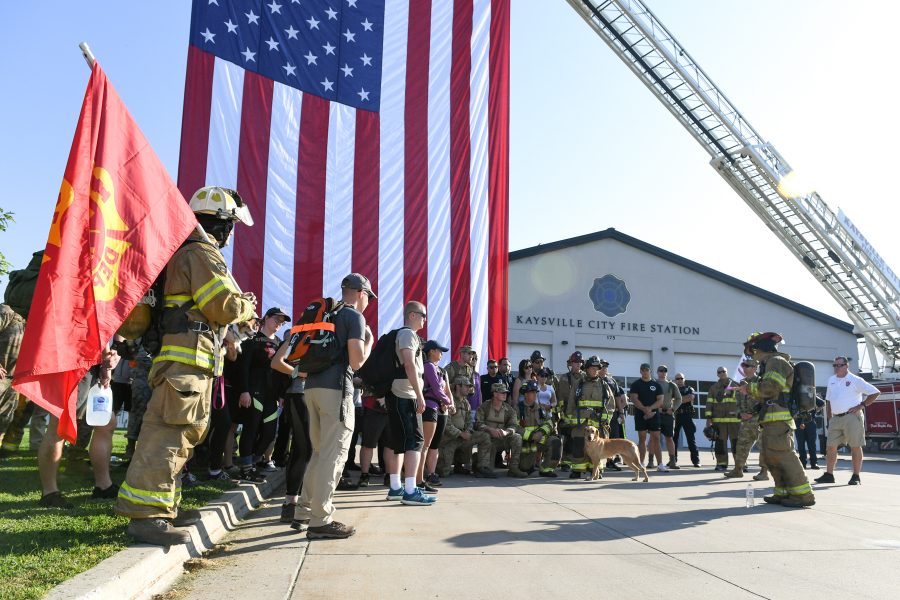September 11, 2001 was two days after my third birthday. Understandably, I don’t know where I was when the towers fell, nor do I remember the panic of that day as people huddled around their TV sets, desperate to learn anything that would make the situation more comprehensible. I can hardly even recall the rumors throughout the following years — the proliferation of conspiracy theories about President Bush or the growing suspicions of weapons of mass destruction in Iraq.
In contrast, my fiancé grew up 30 miles from the World Trade Center. For him, it hit close to home, literally. While he was only four at the time of the attack, he has seen firsthand the toll that this act of terrorism took on his community. His next-door neighbor Kevin, a New York City Firefighter with Engine Company 79, was a first responder during 9/11 and, years later, was diagnosed with 9/11 related cancer.
The destruction of 9/11 is a source of pain for all of America. While it is especially traumatic for those who lived near it, the sorrow from the tragedy is felt throughout the country. Even though I grew up over 2,000 miles away from Ground Zero, the attacks never seemed impersonal to me. Like so many other Americans, I felt the nation’s heavy grief during the moments of silence honoring those who died in the attacks.
That is why it is so difficult to watch a member of Utah’s Congressional Delegation, Senator Mike Lee, place a procedural hold on the September 11 Victim Compensation Fund. This legislation was crafted to provide compensation to first responders with an illness caused by their selfless work during the aftermath of the 9/11 attacks.
The original September 11 Victim Compensation Fund operated from 2001 to 2004 to provide compensation to the families of 9/11 victims, but as first responders continued to fall sick and die years after the attacks, the fund was reactivated in 2011. Of the tens of thousands of first responders who worked at ground zero, more than 70,000 have enrolled in the program.
Experts predict that the number of deaths caused by 9/11 diseases will eventually outnumber the almost 3,000 people who died on September 11, 2001. Sadly, due to the sheer volume of claims, money within the fund began to run out, resulting in a 70 percent reduction in awards for claims made after February 2, 2019. This lead to the Never Forget the Heroes Act, legislation that would guarantee funding for the compensation fund through 2090, which was championed by first responders.
This bill should have passed unanimously. But unfortunately, citing fiscal concerns, Senator Mike Lee blocked voting with a procedural hold. Lee claimed discomfort about the estimated price tag for covering all valid claims. Instead of providing full funding for the next 70 years, Lee proposed providing $10.2 billion to only cover claims for the next 10 years.
Sen. Lee’s fiscal concerns are undercut by the fact that he “proudly” voted for the Republican Tax Plan in 2017, which is expected to increase the deficit by $1.9 trillion over the next 10 years. He seems willing to play the “fiscally conservative” card at the expense of American heroes as they seek relief, but not when providing tax relief to corporations and millionaires. This not only shows that Lee “lacks humanity” but also that he is deeply disconnected from the ideals held by Utahns.
Utah Task Force One, an elite team of 62 Salt Lake City Firefighters, took a military flight to New York City to work as part of the emergency response team on September 11. Sadly, four of the members of the team are currently battling cancer and one of them has already passed away. Doug Rice, one of the members of Utah Task Force One, told KUTV that he was “disappointed” with Senator Lee’s actions: “What if a person who responded is lucky enough to live more than that 10 years?”
Funding the September 11tVictim Compensation Fund indefinitely may not seem urgent — or even important — to legislators like Senator Lee. Perhaps he feels comfortable because he has very few constituents who will ever need access to the fund. Still, providing this funding is morally obligatory. From the NYFD to the SLFD, our nation’s first responders responded with urgency and compassion to our country’s needs on 9/11. Lawmakers should practice the same compassion to meet these heroes’ needs now.
Back in 2014, Senator Mike Lee shared a photo of the Statue of Liberty on his Instagram with a caption that read in part, “Like all Americans, I continue to mourn the loss of family, friends, and fellow citizens that resulted from [the 9/11] attacks… #September11th should always be a day when we both remember those we tragically lost.” Unfortunately, the effects of the terror attacks of 9/11 are not isolated to that single day in 2001. The best way for our country to honor those who lost their lives on that day is to care for the current victims of the attacks, the first responders who spent 10 days selflessly crawling across the rubble to recover victims.
By choosing to honor the loss of life with a hashtag on social media and not with action, Senator Lee has failed to accurately represent the people of Utah or their values. Five years after Sen. Lee’s post and only hours before he placed his procedural hold on the fund, my fiance’s neighbor Kevin passed away, becoming the 199th member of the FDNY to die of World Trade Center-related illness. Gratefully, the Senate passed the Never Forget the Heroes Act despite Senator Lee’s and Kentucky Senator Rand Paul’s opposing votes, but it’s hard to accept that my senator attempted to take funding away from heroes like Kevin.



